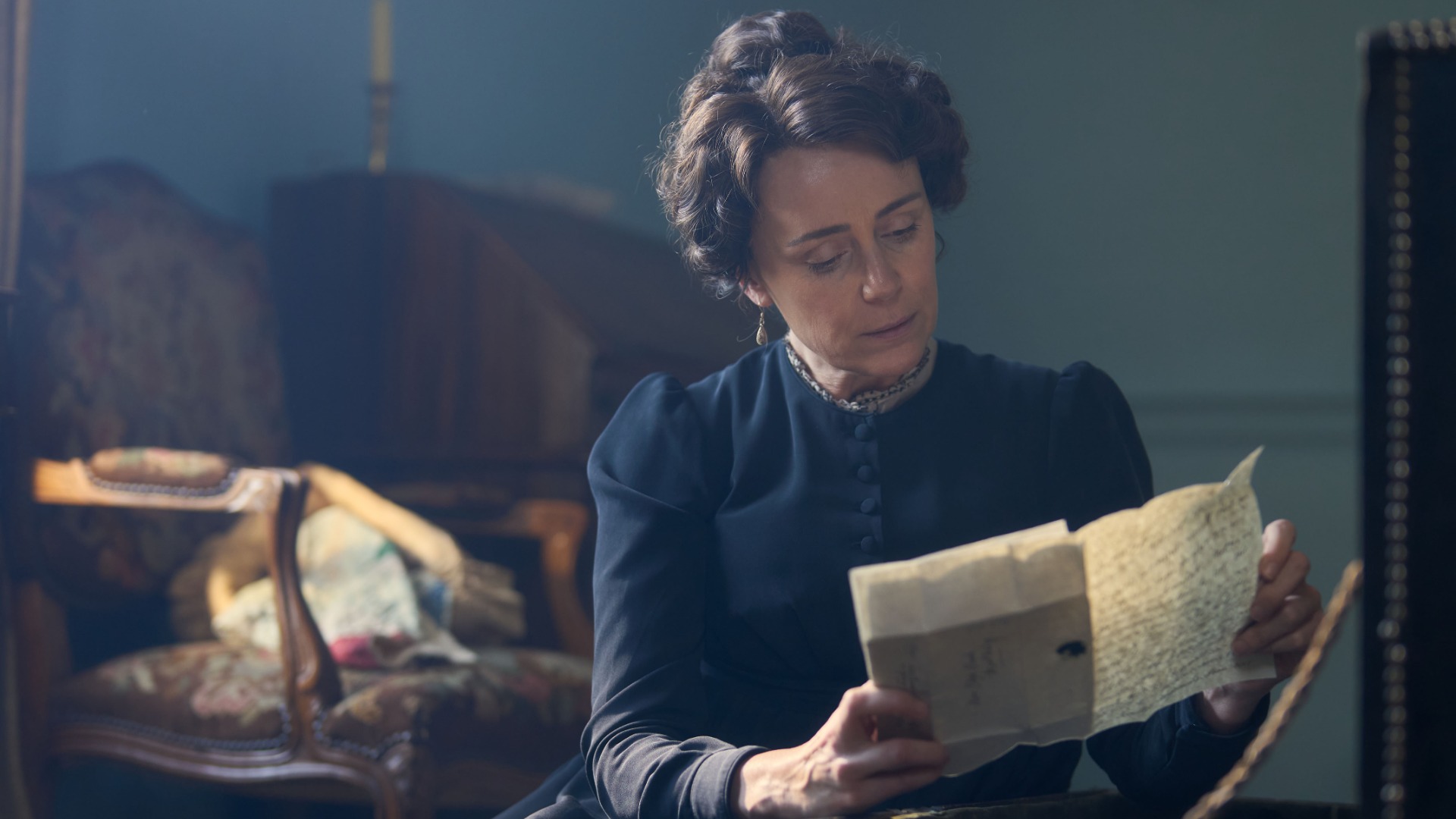Miss Austen: Why did Cassandra burn Jane's letters?
Cassandra burning her sister, Jane Austen's letters, has been avidly discussed among historians and is now dramatised in BBC series, Miss Austen


If you're a fan of history and can't get enough of the best ever period dramas and the likes of Miss Scarlet and Call The Midwife, you should really be tuning into Miss Austen.
Shifting between two timelines, the "present" timeline depicts life in 1840, where long after Jane's death, Cassandra (Keeley Hawes) is in the midst of deciding whether to burn or keep her sister's correspondence. There's also a "past" timeline, seeing the sisters go through love and heartbreak, offering insight into how their experiences affected Cassandra's decisions in the present.
Featuring a stellar cast and based on Gill Hornby's novel of the same name, the series aims to get to the bottom of what has been deemed one of the worst acts of literary vandalism in history - why did Jane Austen's older sister Cassandra, burn her sister's letters?
Why did Cassandra burn Jane's letters?
There's been many possible reasons given for why in 1817, years after Jane's death, Cassandra chose to burn the potentially thousands of letters sent to her by Jane - a huge fan of keeping up correspondence, only 160 of Jane's letters remain in existence today due to Cassandra's actions.
Speaking to BBC Culture, Gillian Hornby, author of the Miss Austen novel, puts forward her own theory surrounding Cassandra's motives. "There are prosaic reasons," she explains, adding, "One is that these letters were newsy, gossipy. Those two shared everything – including very difficult sisters-in-law [the sisters had six brothers]."
"I imagine there would have been a lot of indiscreet mentions of annoying relatives, and Cassandra would have wanted to avoid any future hurt feelings. There would also have been quite a lot of moaning. Jane worried about money incessantly – there are still many mentions left over to prove it. So all in all, they wouldn't necessarily show her in the best light."
In January 1796, 20-year-old Jane Austen wrote Cassandra a letter that would've been considered particularly gossipy. She spoke about a crush she had and how many admirers were showing romantic interest in her. From the surviving letters, it appeared Jane was vivacious and flirtatious, and enjoyed dancing and male attention - attributes that would've been frowned upon at the time.
Sign up for the woman&home newsletter
Sign up to our free daily email for the latest royal and entertainment news, interesting opinion, expert advice on styling and beauty trends, and no-nonsense guides to the health and wellness questions you want answered.
Alongside possibly divulging details of annoying relatives throughout the letters, Cassandra might've believed her sister's reputation would be tarnished should it come out she enjoyed being the object of male affection.
Devoney Looser is Regents Professor of English at Arizona State University and a high-profile Jane Austen authority. "A less often considered theory, which I think probable, is that Cassandra may also have been watching closely, in the early 1840s, the brutal treatment that critics were dishing out in reviews of the recently published letters of the late novelist Frances Burney," she tells BBC Culture.
"Those cruel reviews would have given Cassandra pause, considering that Jane's letters might have faced similar treatment. They might have been skewered in the early Victorian press, if published then.
Of course, almost two centuries later, I think we can be confident that the opposite would eventually have been true – that these additional Austen letters would be welcomed and admired. That part is especially crushing," Looser explains.

Overall, the general consensus around why Cassandra destroyed the letters, appears to sit somewhere between Jane revealing unflattering details about immediate family, and what she divulges about herself.
Despite her apparently vivacious personality, Jane was a deeply private person and trusted Cassandra implicitly - what is documented about the pair show that their bond was especially tight and it grieved Cassandra greatly to live on when Jane died of a mystery illness at the age of 41.
It appears Cassandra acted purely out of love for her sister, wanting to protect her legacy and memory - this is something Keeley Hawes certainly believes. "My own opinion on that is that she did an incredibly noble thing, rightly or wrongly,” Keeley says.
The actress adds, “I know lots of Austen fans feel that it was an act of cultural vandalism, but I think she had great foresight. She couldn’t possibly have known about the world that we live in now, where everybody wants to know everyone’s innermost thoughts at every second of the day.”
Keeley concludes, "Concluded the actress: "She couldn’t possibly have known. And to do this and make it about (Jane Austen’s) work and to look after her legacy in the way that she did, I think it’s the greatest act of love."

Lucy is a multi-award nominated writer and blogger with seven years’ experience writing about entertainment, parenting and family life. Lucy worked as a freelance writer and journalist at the likes of PS and moms.com, before joining GoodtoKnow as an entertainment writer, and then as news editor. The pull to return to the world of television was strong, and she was delighted to take a position at woman&home to once again watch the best shows out there, and tell you why you should watch them too.
-
 The world's prettiest cycling routes, from the majestic Alps of Slovenia to trails skirting New Zealand’s Lake Taupo
The world's prettiest cycling routes, from the majestic Alps of Slovenia to trails skirting New Zealand’s Lake TaupoFrom the Alps of Slovenia to trails skirting New Zealand’s Lake Taupo, these pathways offer beautiful views and terrain for all abilities
-
 Sienna Miller just persuaded me to buy this Charlotte Tilbury 'miracle product'
Sienna Miller just persuaded me to buy this Charlotte Tilbury 'miracle product'Give your skin a silky smooth hydration boost with Charlotte Tilbury's Magic Cream
